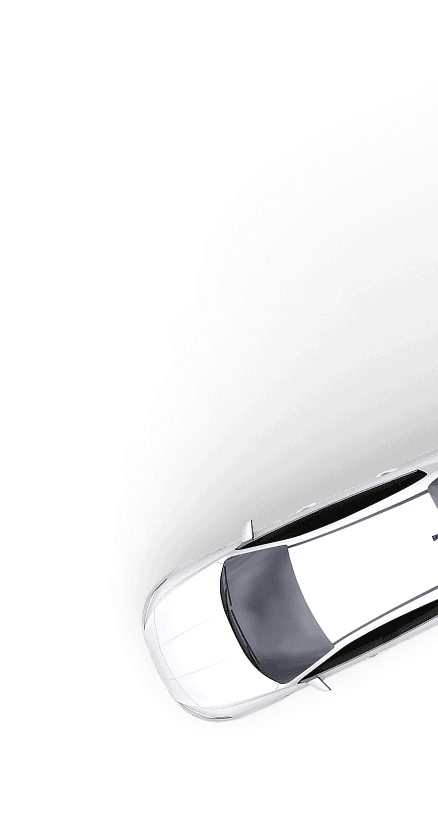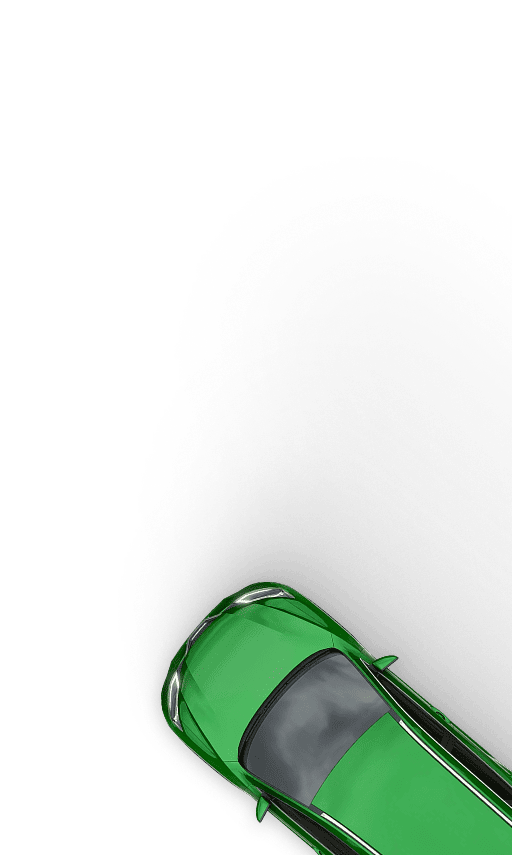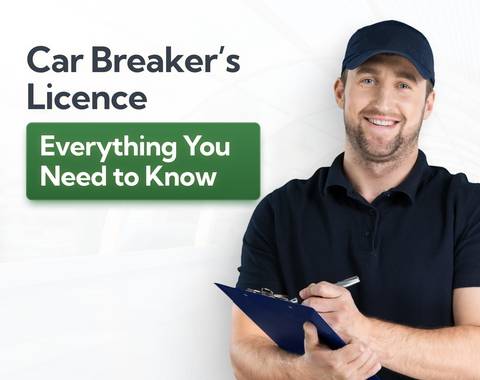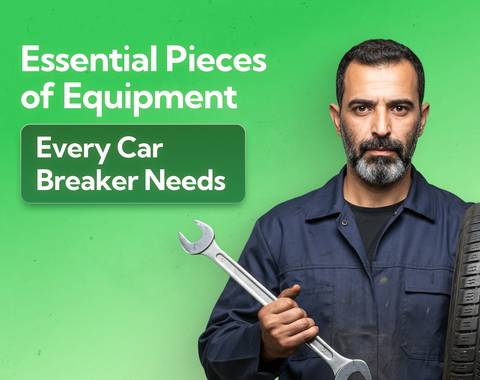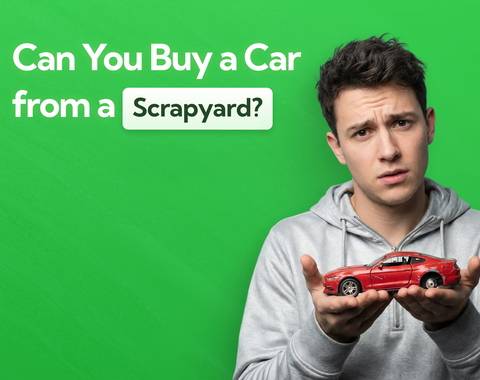10 UK Car Selling Scams (and Red Flags to Avoid Them)
It goes without saying that not all car owners are experts in the trade. But that's precisely why buyers and sellers need to take care to avoid scammers. From dodgy dealers to criminals and fraudsters, here are the most prevalent car selling scams in the UK (and the red flags you need to look out for).
Last updated: 23rd October, 2025

Award-winning automotive entrepreneur, tech innovator, and founder of Car.co.uk, NewReg.co.uk & Recycling Lives.
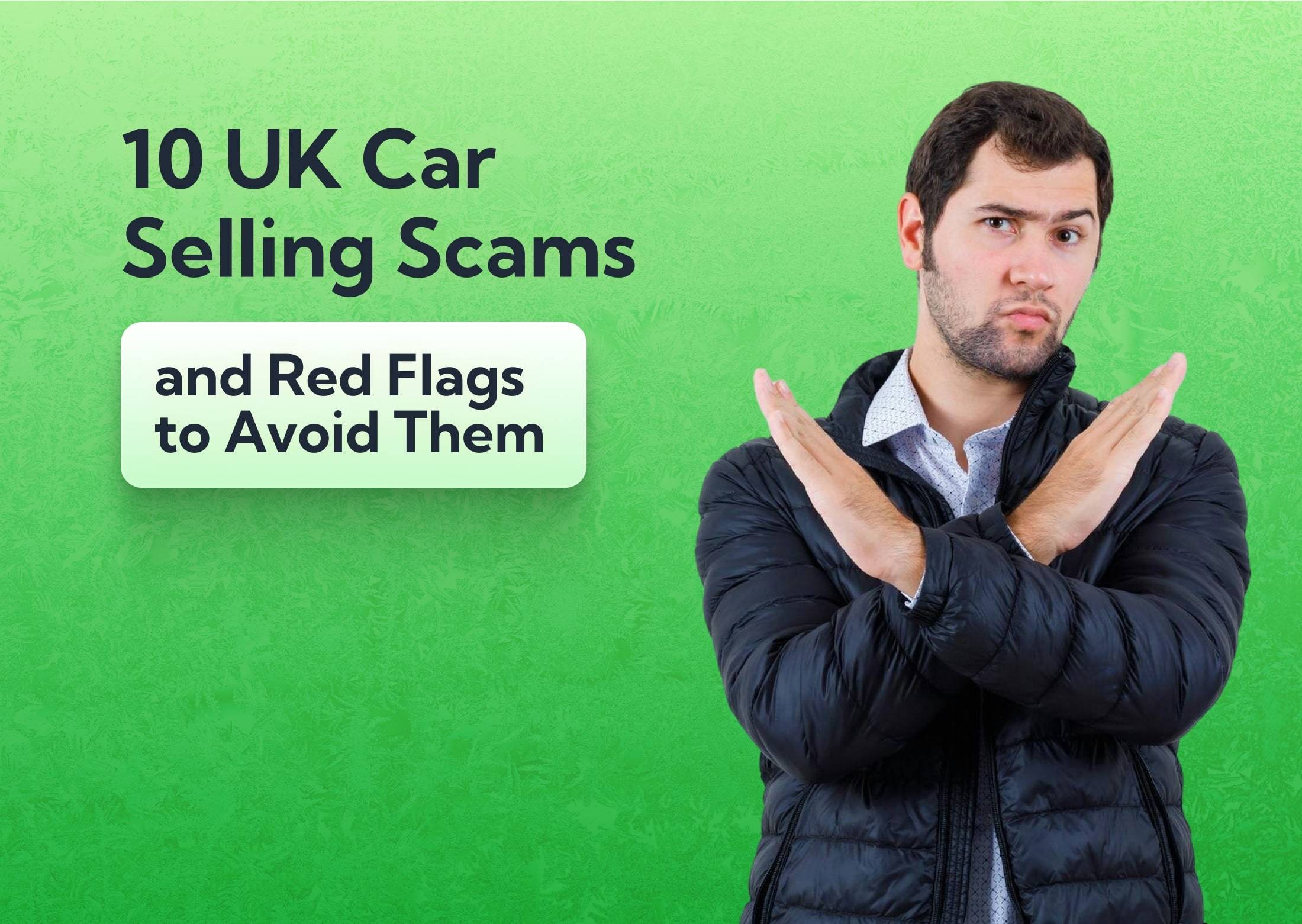
Listen to this story
Why would someone attempt to scam you when buying your car? And how exactly would they pull it off?
It's unlikely you'll face a scammer when trying to sell your car (especially if you sell to a reputable dealer or car buying website). Buyers can be difficult to work with, seem "off" or switch their demeanor during the sale process. Most of the time, this doesn't mean they're out to get you.
But I’ve been in the motor trade for more than 40 years. I promise you, there are lots of people out there looking to take advantage of unsuspecting sellers. Especially if you're selling your car privately, you have to be aware of the potential scams.
What's in this article
- 1. Common Scams When Buying or Selling a Car
- 2. Red Flags to Watch Out for During Purchase or Sale
- 2.1 An asking price (far) below market value
- 2.2 Emails with unusual offers
- 2.3 Strange email addresses
- 2.4 Incorrect English grammar
- 2.5 Sellers in a hurry
- 2.6 Text message or email-only exchanges
- 2.7 Meetings at someone's home
- 2.8 Inability to provide a V5C or MOT certificate
- 2.9 A dodgy vehicle history check
- 2.10 Bad photos
Common Scams When Buying or Selling a Car
Opening yourself up to such a wide pool of potential buyers has its fair share of benefits — higher sale prices, less time on the market and an overall easier process for selling your car.
Unfortunately, the relative ease of access to these sites and the high monetary value of vehicles also makes them attractive targets for scammers.
Look out for the following 10 scams to avoid getting yourself into a financial or legal bind:
Intentional overpayment
Whether you're selling a van, car or truck, the process should be simple: you accept an offer, finalise the payments and hand over the keys.
In an intentional overpayment scam, a car buyer will send a cheque or money order for more than what you’ve listed in your advertisement — often through the post or via third-party international money send services (like MoneyGram and Western Union).
They'll explain that the extra payment was a mistake and ask for it to be returned. The scam works by having you transfer real money from your account into theirs before the original cheque clears.
By then, it's too late — they've successfully taken your money with no legal repercussions on their end. They knew the original cheque or money order was not legitimate the whole time.
Fake mobile deposits
A fake mobile deposit scam is similar to an intentional overpayment scam in that the scammer will send a cheque or money order to deposit into your account.
This time, the payment you receive will be for the fixed amount you agreed upon for the car sale.
Then, one of two things could happen:
- They'll send a text message soon after to let you know that there has been an overdraft in their account and that they need you to return the extra money immediately (this is usually done through a wire transfer).
- You'll hand over the keys when you see the initial deposit hit your account. It will only be a few days later (when it bounces) that you'll realise you've been scammed.
The promise of future payment
A promise of future payment is exactly what it sounds like: a car buyer will offer to pay you at some point in the future, usually after they've had a chance to test drive the vehicle.
They will claim to send money, transfer it into your account or mail you a cheque as soon as everything checks out. The problem is, many of these buyers never end up making a payment.
A promise of future payment is the easiest car buying scam to avoid. All you have to do is refuse the payment method and require an upfront payment before ownership transfer.
Fraudulent ACH transfers
An ACH (Automated Clearing House) transfer is an electronic transaction between two bank accounts. People use ACH transfers for low- or no-fee transactions all the time — for example, to accept payment for services or pay bills.
Although they're commonly used for legitimate purchases and transactions, scammers can use ACH transfers to con you out of your car. The scam works by having the buyer initiate a payment from their account to yours, then cancelling or reversing the ACH before it hits your account.
Even after the ACH payment posts, you aren't 100% safe. The fraudster may call their bank and explain that the payment was made in error. Depending on the bank's policy, they may issue a reversal of the funds, leaving you without your car or money.
"The Matchmaker"
Sometimes, people will reach out to you via chat or email, but not to make an offer on your listed vehicle. Instead, they'll offer to connect you with a third person who's interested in buying the car.
This "matchmaker" may promise to take your car off of your hands quickly and for a reasonable price. They'll ask you not to discuss the sale with anyone else, especially the buyer.
When you let them know you're interested, they will ask for an upfront deposit to "secure the sale".
Ghost cars
After you've carried out a successful, scam-free sale, you take the payment and hand over the keys. Then, you remove the listing and forget all about it.
Mission accomplished, right?
Unfortunately, even after you've done all that work to ensure no one takes advantage of you (or other buyers), there's always the possibility of a ghost car scam.
A "ghost car" is a vehicle that doesn't actually exist. Instead, it's a car that has already sold and been taken down.
It isn't uncommon for fraudsters to save the photos from vehicle listings while they're up and repost them for sale under a different name and price (typically much lower than the market value).
Once buyers message the fraudulent seller and let them know their interest, they're opening themselves up to the possibility of "buying" a car that you already sold to someone else.
Curbstoning and title washing
Curbstoning is an illegal scheme where a person masquerading as a private seller is actually a car dealer or exporter.
The scammer will buy salvaged cars with liens against them, make minor repairs and then flip them for a profit. Of course, they do this without ever alerting buyers to the underlying issue.
They're usually found at flea markets, on the side of the road or parked in less-trafficked areas of town.
Title washing has similar intent as curbstoning — misleading buyers about a car's true history, often to sell a car with a salvage title.
The scammer will purchase vehicles with existing liens against them, then transfer the title between different regions of the UK and countries to bypass the existing lienholder and/or other issues associated with the vehicle.
In some cases, they'll use a completely different name to register it so it appears as if no previous owner existed.
Per UK law, it is a criminal offence to sell an unroadworthy vehicle without the user's explicit knowledge. And if the buyer pulls away from the sale with a car that isn't fit to be on the road, they are now liable for any fines or damages incurred from driving it.
Fake escrow services
If you're selling your car online, chances are you've come across potential scams involving fake escrow services.
An escrow service is typically a third-party that holds the funds from an online transaction (in this case, money from a car sale) until both parties are satisfied with the purchase and all paperwork has been completed. They're real businesses that offer an extra level of security when buying or selling a car, but they don't come for free.
Some scammers will create fake escrow sites (complete with a website, email addresses, "testimonials" and a customer support number) to convince buyers that their payment is going somewhere legitimate.
Once buyers are conned into using their services, someone from the fake organisation will ask them to send money directly to the "escrow" account.
In reality, it's just a scammer's bank account, and you may never see your payment again.
VIN cloning
All registered vehicles in the UK have a unique VIN (Vehicle Identification Number) assigned. It's like your car's fingerprint — a set of 17 characters that tells you everything about the vehicle, including its history, make and model.
VIN cloning is an advanced scheme where scammers take the VIN from a legitimate vehicle and copy it onto the one they're selling using machinery or software. They do this to hide the fact that the car they're selling is stolen or salvaged.
VIN cloning is a car selling scam that, unfortunately, the buyer almost always pays for. If you purchase a vehicle with a cloned VIN, you can face the following ramifications:
- If authorities discover your vehicle's VIN doesn't match the one registered to you, they will seize your car and return it to its rightful owner.
- If you take out a loan on the vehicle, it will remain in your name as an unsecured loan.
- The responsibility for traffic violations (such as speeding or parking tickets) another driver committed will fall upon you.
- If the car's previous owner(s) used it to commit a crime, you will have to spend heaps of time and legal fees to prove you weren't the one responsible.
VIN cloning is a much greater risk when dealing with private sellers, especially those selling cars on sites like Craigslist and eBay.
Long-distance vehicles
You've been looking far and wide for your dream car. When you finally find the perfect car at a price you're happy with, there's a problem: You're in Liverpool and the car is in London.
Long-distance car transactions are ripe for fraud. The seller may offer to bring the car down for a test drive in exchange for a down payment, but they never show up.
Alternatively, they may ask you to wire them money to carry out the delivery in-person. Then, they'll stop responding after you've sent the payment.
Red Flags to Watch Out for During Purchase or Sale
If you're wondering, "How can I avoid these scams in the first place?" the answer is simple. If you know the red flags and take necessary precautions, you can avoid becoming a victim of car selling fraud.
If you notice any of the following, it's best to walk away:
An asking price (far) below market value
Any seller in their right mind would want to get as much money for their car as reasonably possible. They clearly aren't worried about recouping their investment if they ask a vehicle price thousands of pounds below what you'd expect to pay.
It's one thing to want a car off your hands as quickly as possible. But chances are, they aren't afraid to ask so low because they didn't buy the car in the first place.
Pro tip for sellers: At a certain point, a low price will seem too good to be true for buyers. You may think you're setting an attractive price point, but it's better to charge a fair and reasonable amount. Know your car’s value ahead of time with our free car valuation calculator.
Emails with unusual offers
Most scammers will reach out via email through a listing they found online. Especially if you are selling a damaged car or one that doesn't run, they'll see you as "vulnerable".
When a scammer reaches out to you over email, they'll try to make a deal with you. They'll usually ask you to do one or more of the following:
- Transfer money to an anonymous escrow account
- Receive a money order or cheque
- Send them a "refundable" deposit in return for connecting with a buyer
Any real buyer who is interested in your vehicle will come to you directly, not through a third party. And as a general rule of thumb, never accept payments via money order or cheque (it's easier to accept other payment methods, anyway).
Strange email addresses
Whether you're buying or selling a vehicle, you should be able to notice right away whether an email account is legitimate or not.
- Here are a few indicators that should raise questions:
The address has an excessive amount of numbers in it (e.g., travis918592903153@example.com) - The address doesn't match the buyer's/seller's name
- The address doesn't fit the business's profile (e.g., a company called "Autos R Us" having an email address from Gmail, Yahoo or Hotmail)
Incorrect English grammar
A dodgy email address isn't automatically a red flag. But if the conversation continues and you find multiple typos, poor grammar, a greeting nobody else uses or awkward sentence structures, it's time to bail.
Many fraudsters on online listing sites will find your car or list their own from another country. If they have an odd email address and their request seems unusual, you're almost certainly dealing with someone looking to scam you.
What the experts say

Anthony Sharkey
Sellers in a hurry
If a seller appears too eager for you to buy their car, and they're pushing you to seal the deal without any further questions, it's probably because they're trying to avoid scrutiny.
This could be because they cloned the VIN number, they're lying about the vehicle's condition or they're trying to sell a stolen car.
There are legitimate reasons to be in a hurry, too. Perhaps the seller is relocating, or they need to get rid of it for immediate financial reasons. You'll have to use some common sense when distinguishing between the two.
Text message or email-only exchanges
One of the easiest ways to distinguish between a genuine buyer and someone who's in a rush to scam you is to speak with them on the phone or meet them. If they refuse to answer your calls, something fishy is going on.
The same goes for sellers. If they insist everything should be done through email or text message, it may be because they are trying to hide their identity or avoid being caught with stolen property.
Although online exchanges are becoming increasingly common, it's still best to meet in person before buying or selling a vehicle.
Meetings at someone's home
Although meeting someone in person is an excellent way to evaluate their likelihood of scamming you (e.g., do they look like a regular person?), it also carries its own risks.
Always meet at a public place like the local library, mall parking lot or other neutral zone. Unless you know the buyer or they were recommended to you, it's best to meet elsewhere.
Inability to provide a V5C or MOT certificate
You might come across a seller who cannot produce their car's V5C logbook and MOT certificate. It's possible to sell your car without a V5C logbook. But most people will simply get a new one before selling it because the process is so easy.
If, for whatever reason, the individual selling you their car refuses to get a new V5C from the DVLA, you should immediately start to question why. Since it has the registered keeper's name on it, it's the most important document involved in the sale. Not having one could hint the car has been stolen.
Selling a car without an MOT is also possible, but your seller will have to be transparent about the vehicle's condition (because you will not be able to drive away with it). If they are unable to present one, keep this in the back of your head when you look into their vehicle history.
A dodgy vehicle history check
You should always conduct a history check before buying any vehicle. When you do so, the history should match the seller's story.
If something looks fishy, such as extremely low mileage or incorrect colour/VIN information, the car might have some kind of defect that was not previously mentioned. It could also have been stolen or cloned.
Bad photos
Bad photos aren't an immediate indicator of a scam. They could just mean the seller is quite lazy. But if you are paying thousands of pounds for a car, you should be getting more than just a few fuzzy images of the exterior.
Ask the seller to provide some interior shots as well. You'll also want to make sure that the photos match up with their description of the vehicle's condition and features. If they cannot provide other photos of the vehicle, it's probably a fake listing.
It's worth noting that a scammer is also capable of taking high-quality photos of their vehicle, so don't put too much stock in the quality of the photos alone.
How to Protect Yourself When Buying or Selling a Used Car
Aside from spotting red flags before carrying through with a sale, there are several things you can do to protect yourself from a potential scammer. Even if they're the best at what they do, these are surefire ways to keep you on the safe side of the transaction.
Buy from a reputable dealer if possible
Selling your car privately is how you get the most money for your car. But it's also how most scammers get away with their schemes.
Authorised dealers and car buying sites like Car.co.uk have systems in place to protect buyers and sellers from fraud. They'll conduct a thorough check on your vehicle and they will only accept it if it meets their standards.
When you sell your car through us, we’ll give you the exact amount we’re willing to pay up front. We’ll pick it up for free, pay you instantly through a secure bank transfer and take it to a scrap buyer or breaker who’s licensed under UK law.
Perform a vehicle history check
Regardless of how you're buying a second-hand car, getting information from the DVLA is quite simple. Using its website, you can find out basic information about the car you're buying. This includes its make, model and colour, whether it passed its MOT within the last year and if it's been taxed. You will also be able to see when taxes are due and if the car was reported stolen.
- Visit the DVLA website
- Navigate to 'Start Now'
- Enter the vehicle's registration number
- Verify the details and click 'Yes' if they match
- Continue to the next screen and it will show you all the info
Yes. It's that easy. And it's most certainly worth the time to do.
Other online organisations allow you to purchase a more detailed car history check, which we also recommend doing (especially if the DVLA information doesn't add up).
Have the car inspected before buying
Even if you're buying your car from someone you trust, you should always have your own mechanic inspect it. They will be able to tell you if there are any mechanical or structural issues you weren't made aware of.
For sellers, having a mechanic check your car before you advertise it can also help protect yourself against fraud. An accurate assessment of your vehicle's condition and value can make all the difference when it comes time to negotiate a sale.
Meet with buyers in person before transacting
With the potential exception of a highly reputable used car dealer, online site or an original manufacturer's used car division, there is absolutely no reason to send money or exchange your vehicle without meeting with the buyer first.
For sellers meeting with buyers for test drives and viewings, remember the following:
- Tell someone where you're going and who you'll be with.
- Verify your buyer's identity and proof of Driving Other Cars (DOC) insurance.
- Sit in the passenger's seat when they test drive your car and offer to put the key in the ignition for them.
- Never leave the keys with the buyer.
When it comes time to go through with the sale, don't hand over the keys or transfer ownership with the V5C until the money is sitting in your account (without waiting for anything to clear).
Only accept cash or certified checks
Avoid money send and cashier's cheque scams by only accepting cash or certified checks (if you're willing to wait for the funds to clear). Never accept a check from a third-party buyer, either.
If you are unsure about receiving counterfeit money or a bad cheque, transact at a bank. They will be able to verify your buyer's payment on the spot.
Consider an escrow account for out-of-area buyers
Escrow accounts could potentially be fraudulent. But legitimate ones are designed to protect the buyer and seller (and their money) throughout an online or long-distance transaction.
A third party manages the account, and they only release funds when both parties agree that the terms of the sale have been met.
Frequently asked questions
Since vehicles cost thousands (or tens of thousands) of pounds, it is extremely unlikely someone would want to buy one on the secondary market without seeing it first. If a buyer is eager to purchase your vehicle without seeing it first, it is almost certainly a scam.
It is unlikely your buyer will agree to buy your car and have thousands of pounds right there with them. They will probably have to go home, get their finances in order and return with cash, a cheque or a bank transfer. To secure their purchase, they will usually offer a nominal deposit (e.g., 10% of the purchase price) to take the car off the market.
The best way to prove you are not a scammer is by providing a verified vehicle history report. When your name written on the report matches the one in the V5C logbook, you can prove to a buyer that you are the vehicle's registered keeper. In addition to the regular documents needed to sell your car, you should also give your buyer parts receipts, maintenance and service receipts/history and proof of arrangements to settle your debt (if you're selling a car on finance).
If you get scammed through cryptocurrency, a money order or a wire transfer, tracking down and recovering the funds will be impossible. If you sent money through your bank account or by credit card, contact your bank and explain what happened. Most banks have fraud protection policies in place and can investigate the claim. If they find out that you were scammed, they should be able to reimburse the amount.
If you suspect a scam, you can either ditch the deal completely or question the other party further. You should always trust your instincts. If something doesn't seem right, it probably isn't.
Online car selling/buying scams are the most common because they are the easiest to pull off. The scammer could be located anywhere in the world, and all it takes is a fake vehicle listing or email address to get started. In-person scams like VIN cloning are much less common.
When meeting a buyer or seller in person, the biggest precaution you can take is bringing a friend with you and meeting in a public place. You should also ask for ID and verification of the buyer's insurance policy. When meeting a buyer for a test drive, remember to sit in the passenger seat while they drive and don't give them control over the keys.
You can easily verify the authenticity of a car's title and ownership documents by conducting a free search on the DVLA website. You can also purchase a more extensive report from a third-party website.
If you receive a suspicious payment during a vehicle transaction, the best thing to do is ignore it. It will almost certainly bounce within a few days. Additionally, watch your bank account closely for other fraudulent activity and contact your bank if needed.
You can get scammed on online car buying marketplaces, including eBay Motors. Some listings are not real and others may appear real but have been taken from other sources. Always research the listing, vehicle history and seller before committing to a purchase.
If you get scammed buying a car, the first thing you should do is contact the police to report it. You should also try to get your money back via chargeback from the bank or credit card company if you paid by debit/credit/bank transfer.
About Car.co.uk
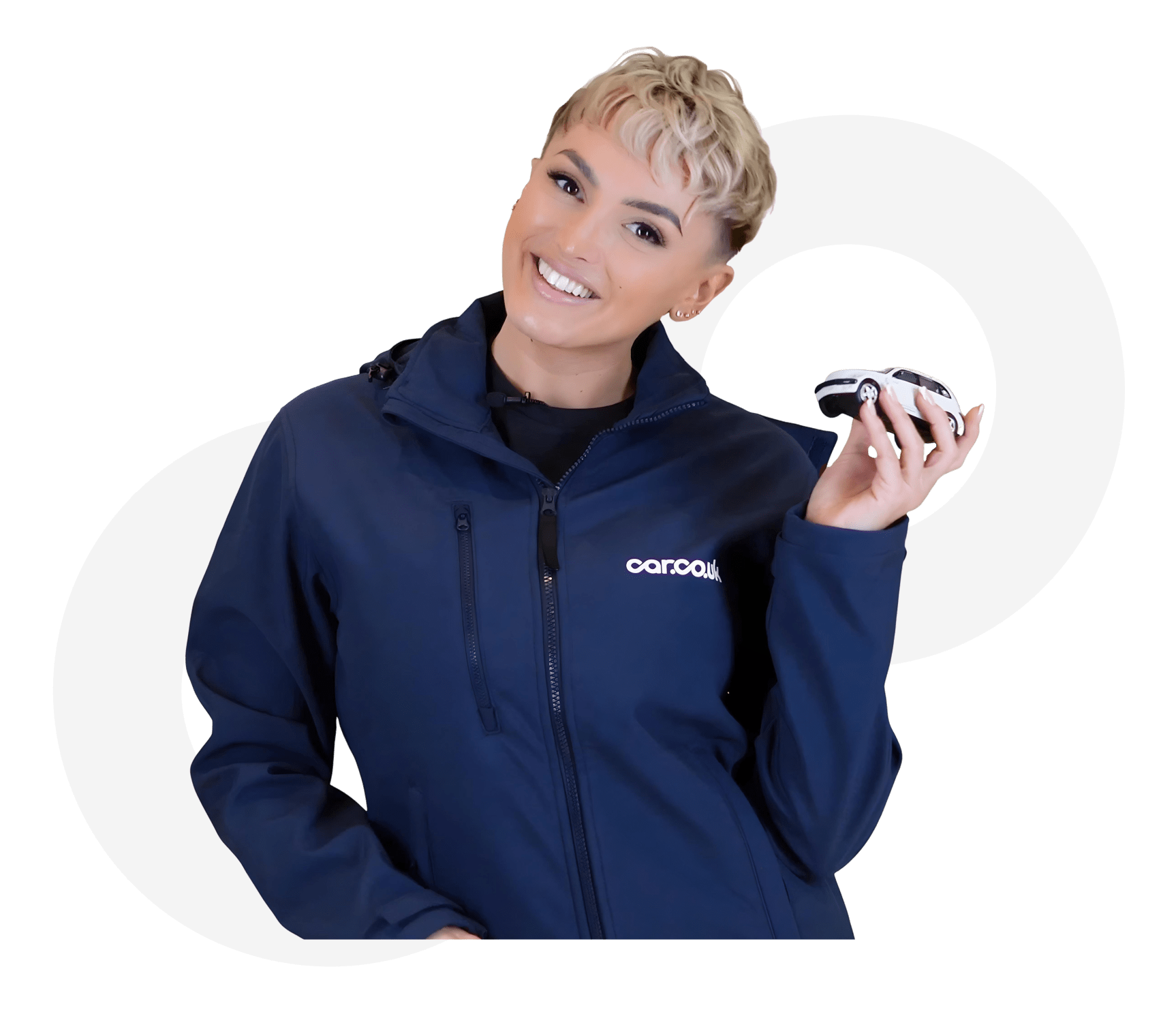
Share on
Latest news & blogs


